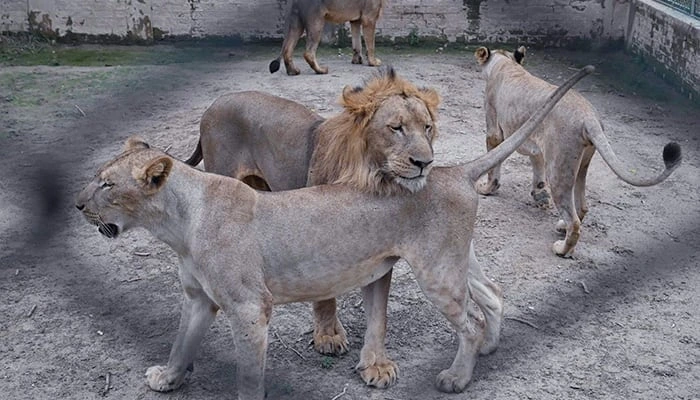In the aftermath of a shocking lion attack in Lahore’s Johar Town, the Punjab government is accelerating its efforts to regulate private big cat ownership, signaling a significant policy shift with far-reaching consequences. The incident, which injured a woman and two children, has reignited debates around the illegal keeping of dangerous wild animals in urban areas and underscored the province’s commitment to enforcing stricter wildlife laws.
Lion Attack in Johar Town: Details and Immediate Response
The attack occurred when a lion, reportedly kept illegally at a private farmhouse in Shah Di Khoi, leapt over a wall and mauled three unsuspecting passersby. The victims, a woman and two children, sustained serious injuries, with both children currently receiving treatment at a local hospital.

Punjab Chief Minister Maryam Nawaz reacted swiftly, announcing financial assistance of Rs500,000 for each of the three injured individuals. According to a statement released by the provincial government, this measure aims to support the victims’ medical expenses and recovery.
“Such incidents highlight the grave risks posed by keeping dangerous wild animals in private enclosures,” said Punjab Wildlife Director General (DG) Mubeen Elahi in an interview with Express News.
Province-Wide Crackdown on Illegal Wildlife Possession
In response to the Lahore incident, the Punjab Wildlife Department has launched an intensive province-wide crackdown on illegal ownership of big cats and other dangerous species. Authorities have seized a total of 18 lions across multiple cities and arrested five individuals in connection with illegal wildlife possession.
The largest operation took place on July 5 in Lahore, where officials raided a private breeding facility on Bedian Road. Led by DG Mubeen Elahi, the team confiscated five lions—three males and two females—and sealed the premises.
Key statistics from the crackdown include:
- Total lions seized: 18
- Lions seized in Lahore: 9
- Individuals arrested: 5
- Private enclosures sealed: 1
- First Information Reports (FIRs) filed: 5
- Ongoing investigations: 2
According to experts, the operation marks the first systematic attempt in Punjab to regulate private ownership of lions, tigers, leopards, and other exotic wildlife.
Policy Shift: Regulating Private Big Cat Ownership
In a significant policy development, the Punjab government has announced measures aimed at controlling the possession of big cats in private hands. These include:
- Mandatory sterilisation of privately owned lions, tigers, leopards, and similar species to curb breeding.
- A phased ban on the commercial buying and selling of big cats.
- Strict registration and licensing requirements for wildlife breeding facilities.
DG Mubeen Elahi described the policy as
“a structured, long-term approach to prevent dangerous incidents and ensure animal welfare.”
As per a report by Dawn News, the government had earlier set a deadline of May 2 for all private owners to declare their exotic animals. To date, 180 registered wildlife breeding farms have submitted declarations, with official verification ongoing. Of these, 40 facilities have successfully completed the verification process.
Why Is Private Lion Ownership Common in Punjab?
The presence of privately owned lions and other big cats is not new in Punjab.
Most of the rich people have exotic pets as a status symbol or to breed them. Nevertheless, the practice is a grey area as far as legality is concerned.
According to wildlife analysts, factors driving private big cat ownership include:
- Prestige associated with exotic animals
- Lucrative profits from illegal wildlife trade
- Weak enforcement of existing wildlife protection laws
Wildlife NGOs such as WWF-Pakistan have repeatedly raised concerns over the welfare of big cats kept in small, poorly managed enclosures.
“Wild animals like lions require specialized care and large, secure habitats. This is very dangerous to the animals and the general population to keep them within urban centers, as WWF representative asserts..
Legal Framework and Challenges
While the Punjab Wildlife (Protection, Preservation, Conservation and Management) Act, 1974 governs wildlife protection in the province, enforcement has historically been inconsistent. Experts point out that the lack of strict penalties and loopholes in licensing procedures have contributed to the rise of illegal big cat ownership.
As per legal scholars from the Pakistan Environmental Law Association (PELA), the new policy direction, which includes sterilisation mandates and sales bans, aligns Punjab with international best practices for wildlife conservation.










